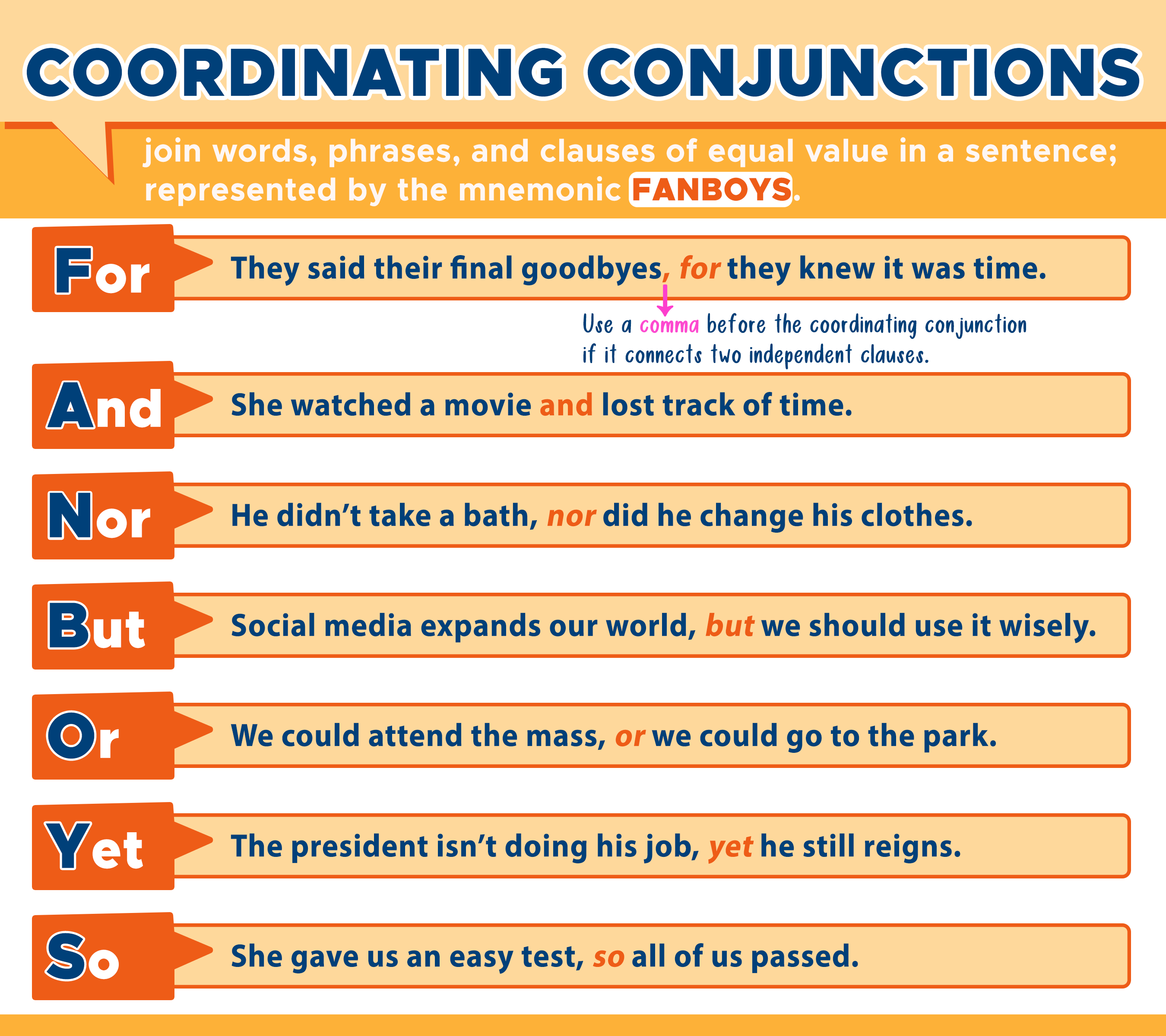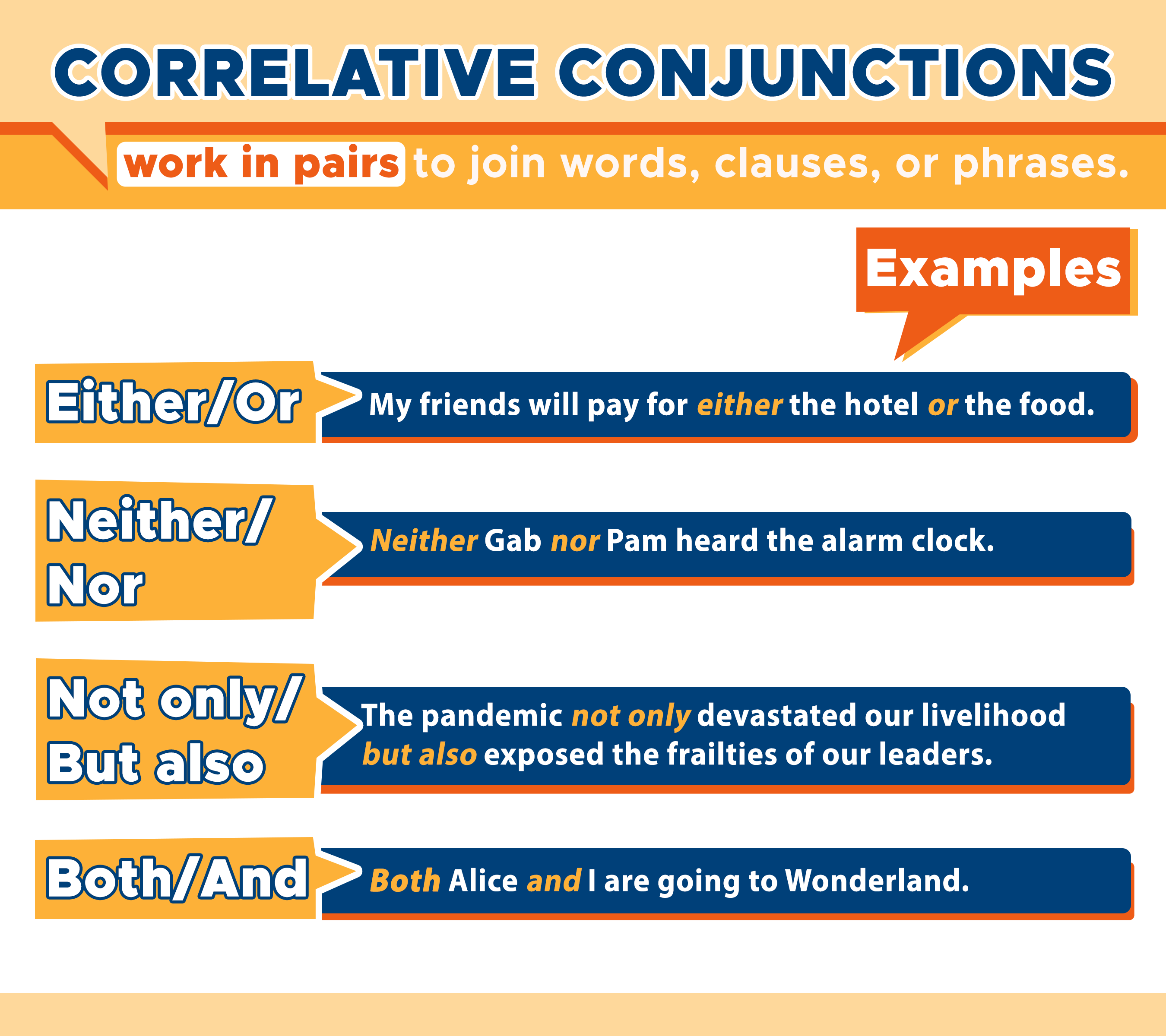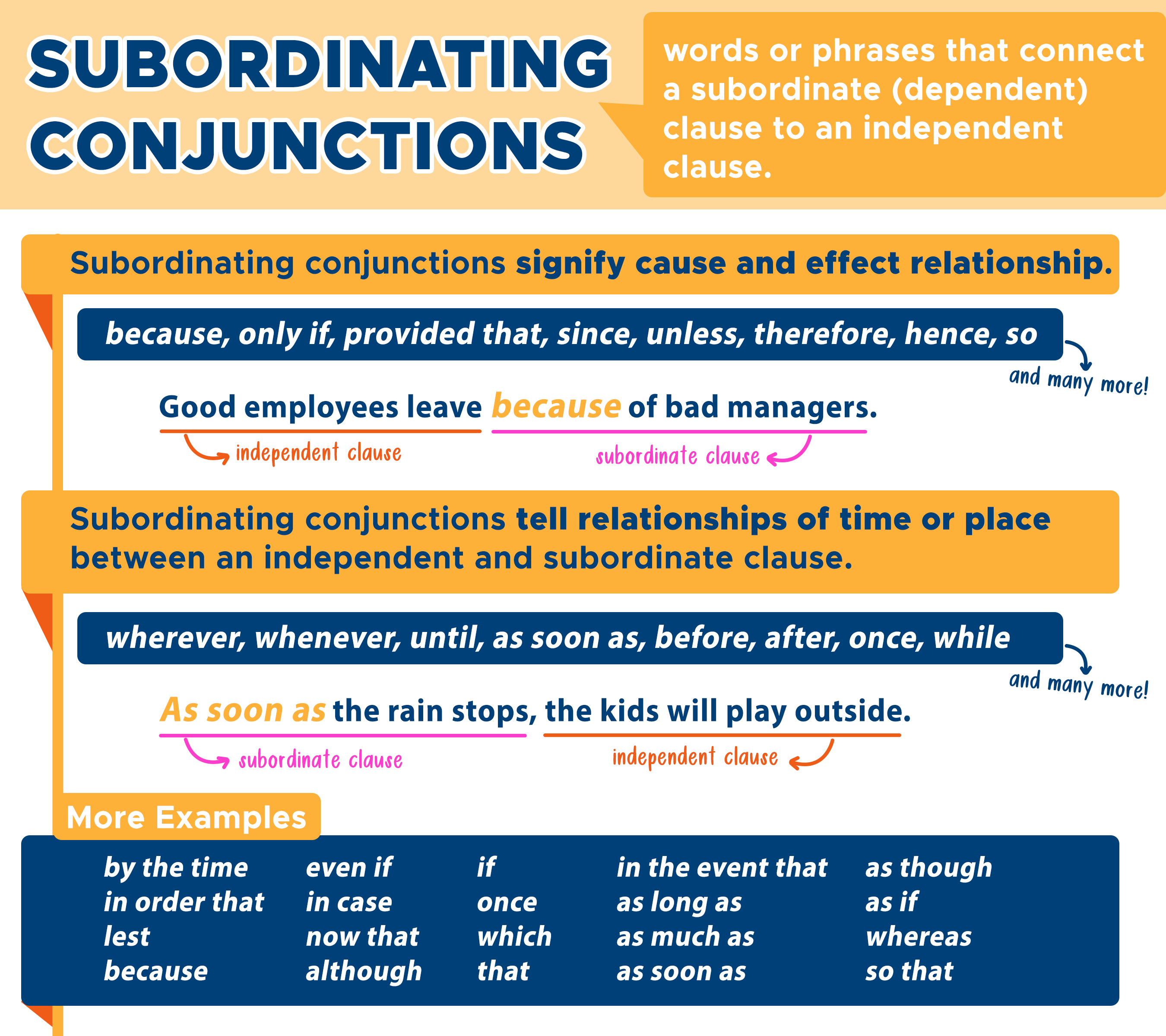What is a Conjunction?
While short sentences are easy to read, they may not be able to fully convey what you mean. Concise is okay. Too short is sometimes not. Likewise, long sentences that try to squeeze in a lot of thoughts may be hard to follow as readers will eventually get tired of reading it and feel like in need of a breather. Right? That’s where conjunctions come in. A conjunction is a word that joins words or groups of words. It helps break down ideas into more readable units.
Use conjunctions to connect your thoughts and achieve clarity. Here are the different kinds of conjunctions:
Different Kinds of Conjunctions and How to Use Them
1. Coordinating Conjunctions
Coordinating conjunctions are the most popular connecting words. They join words, phrases, and clauses of equal value in a sentence. The coordinating conjunctions are for, and, nor, but, or, yet, so. Remember them better using the mnemonic device, FANBOYS.
- She watched a movie and lost track of time.
- I went to the store, but I forgot to bring my wallet.
- He will attend the class, or he will fail again.
- We didn’t prepare for the quiz, yet we still passed.
- They said their final goodbyes, for they knew it was time.
Use a comma before the coordinating conjunction if it connects two independent clauses. Notice the second to fourth examples above.
NOTE: Make sure the words or groups of words connected by conjunctions are parallel in form.
Wrong: She watched a movie and loses track of time. [The verbs are not parallel because they have different tenses. Make sure they match.]
Correct: She watched a movie and lost track of time.

Related Reading: Verb Tense Consistency – Maintain or Change?
2. Correlative Conjunctions
Correlative conjunctions always come in pairs. Examples are: either/or, neither/nor, not only/but also, and both/and.
- My friends will pay for either the hotel or the food.
- Neither the teacher nor the students felt the earthquake.
- The pandemic not only devastated our livelihood but also exposed the frailties of our leaders.
- Both Alice and I are going to Wonderland.

3. Subordinating Conjunctions
Subordinating conjunctions are words or phrases that connect a subordinate (dependent) clause to an independent clause.
Recall that an independent clause is a group of words that form a complete thought. Meaning, it has a subject and a verb and can stand alone as a sentence. In contrast, a subordinate clause or dependent clause is a group of words that do not express a complete thought and can’t stand as a sentence alone.
Commonly Used Subordinating Conjunctions
| after | by the time | only | unless |
| although | even if | only if | until |
| as | even though | provided that | when |
| as if | if | since | whenever |
| as long as | in order that | so | where |
| as much as | in case | supposing | whereas |
| as soon as | in the event that | that | wherever |
| as though | lest | than | whether or not |
| because | now that | though | while |
| before | once | till |

3.a) A subordinating conjunction builds the connection between clauses. It signifies cause and effect relationship. Examples are because, only if, provided that, since, unless, therefore, hence, and so.
Here are examples of sentences with an independent clause (underlined) and a subordinate clause (in bold) connected by a subordinating conjunction (italicized).
- Monica left Richard because he doesn’t want to have kids.
- You’ll never move forward unless you take the first step.
- My brother will give me his room provided that I do his homework for a month.
3.b) A subordinating conjunction also joins a subordinate clause to an independent clause and tell how, when, where, why, or under what conditions. Examples are wherever, whenever, until, as soon as, before, after, and once.
- She promised to return once she finds her mom.
- Phoebe sings whenever she misses her mom.
NOTE: When it begins a sentence, use a comma after the subordinate clause.
- Whenever Jakes feel uncomfortable, he cracks a joke.
- After breaking up, they sold the house.
When it is placed in the middle of the sentence, subordinate conjunctions do not usually require a comma.
Wrong: They sold the house, after breaking up.
Correct: They sold the house after breaking up.
Practice:
In each sentence below, bolden the coordinating conjunction then italicize the independent clause, and leave the subordinate clause unitalicized.
- As much as we want to help, we really need to leave.
- Ana loved him even if she never got to say it.
- Whether they run or not, they can never escape.
- Amy got fired as a result of yelling at her boss.
- Jake always cracks a joke as though everything is funny.
Answers.
- As much as we want to help, we really need to leave.
- Ana truly loved him even if she never got to say it.
- Whether they run or not, they can never escape.
- Amy got fired as a result of yelling at her boss.
- Jake always cracks a joke as though everything is funny.
Thank you for reading. We hope it’s effective! Always feel free to revisit this page if you ever have any questions about conjunctions.
